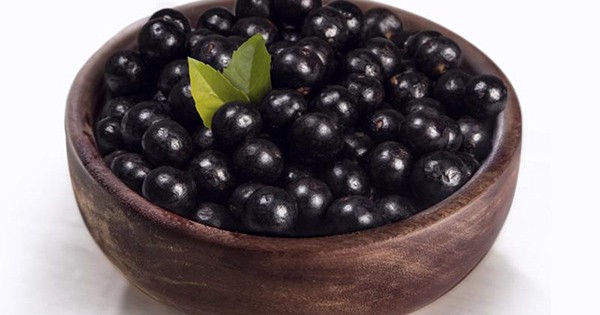Acai berries seem to be trending nowadays and many people are quite wondering why. Touted as the new superfood, acai berries are said to be packed with lots of antioxidants and aids in weight loss too! But can these berries live up to all that hype?
Defining the acai berry
The acai berry is a red-purplish colored fruit that’s right about an inch long. It’s the fruit of the acai palm tree which is most often found in South and Central America. A lot of studies are saying that in terms of antioxidant content, acai berries reign supreme, trumping that of cranberries, strawberries, blackberries, blueberries and raspberries.
Discussing the health benefits of acai berries
It seemed that people consume acai berries for a variety of reasons. It can be for weight loss and to help aid in warding off a lot of health conditions.
- It improves cardiovascular health.
A lot similar to red wine, research have shown that acai berries contain high amounts of the plant antioxidant referred to as anthocyanins. Anthocyanins are said to be of help in terms of lowering the blood cholesterol levels in the human system. Acai berries are also packed with plant sterols that give off heart-protective benefits to the cells by preventing the formation of blood clots, relaxing the blood vessels and generally improving the entire circulation.
- It is helpful in fighting harmful organisms.
The Federal University of Rio de Janeiro have conducted a research about acai berries and found out that these fruits can be helpful in warding those pesky and harmful organisms away from our bodies.
- It can help it weight management.
It’s regarded as super food, thus it’s a no-brainer to see that it not only helps in losing weight but is also great in helping you keep those excess fats off your body. An interesting study on acai berries have concluded that its pulp contain properties that can help lessen the negative side effects of a high-fat diet—something that’s based on lab studies with flies as subjects.
- Acai berries promote better skin health
At the moment, a lot of beauty and skin care products utilize acai oil mainly due to its high antioxidant properties. If you want to go au-naturale when it comes to skin care, acai oil may be a great alternative to those chemical-based skin products that may be harmful to the skin if used for extended periods of times.
- It can help in your digestive processes.
Acai berries may help keep your gut processes in line and working at optimum conditions. Acai berries come packed with loads of detox properties and can also be a good source of dietary fiber. Of course, a lot of other foods and berries can help you with your fiber needs too.
- Acai berries can help reduce your irritation and inflammation response.
These fruits are said to contain properties that can help lessen levels of a typical irritation that occurs in response to a distress in the respiratory system.
- Acai berries can help improve the immune system
Acai is loaded with vitamin C and ellagic acid–a combo of nutrients that are great in boosting the immune system and are seen to have potential in terms of suppressing the growth of cancer. The Journal of Agriculture and Food Chemistry has published a study showing how the polyphenolic compounds extracted from acai berries have manage to lessen cancer cell growth by as much as 56-86%. It is hypothesized that the phytochemicals found in acai berries can kill the process of carcinogenesis on a cellular level which means stopping the cancer cells even before they have the chance to multiply. Now this is by no means implying that acai berries is the cure to cancer but there’s hope that more research will be done to examine their potential roles in the fight against the big C.
- Acai berries have anti-aging effects.
Thanks to its antioxidant properties, acai berries can help in slowing down the effects and may even reverse the typical aging processes that happen mainly due to oxidative damages. In fact, acai berries are regarded to be one of the planet’s highest sources of antioxidants. One acai berry contains antioxidant amounts ten times to that of grapes, and about twice the amount that blueberries carry.
